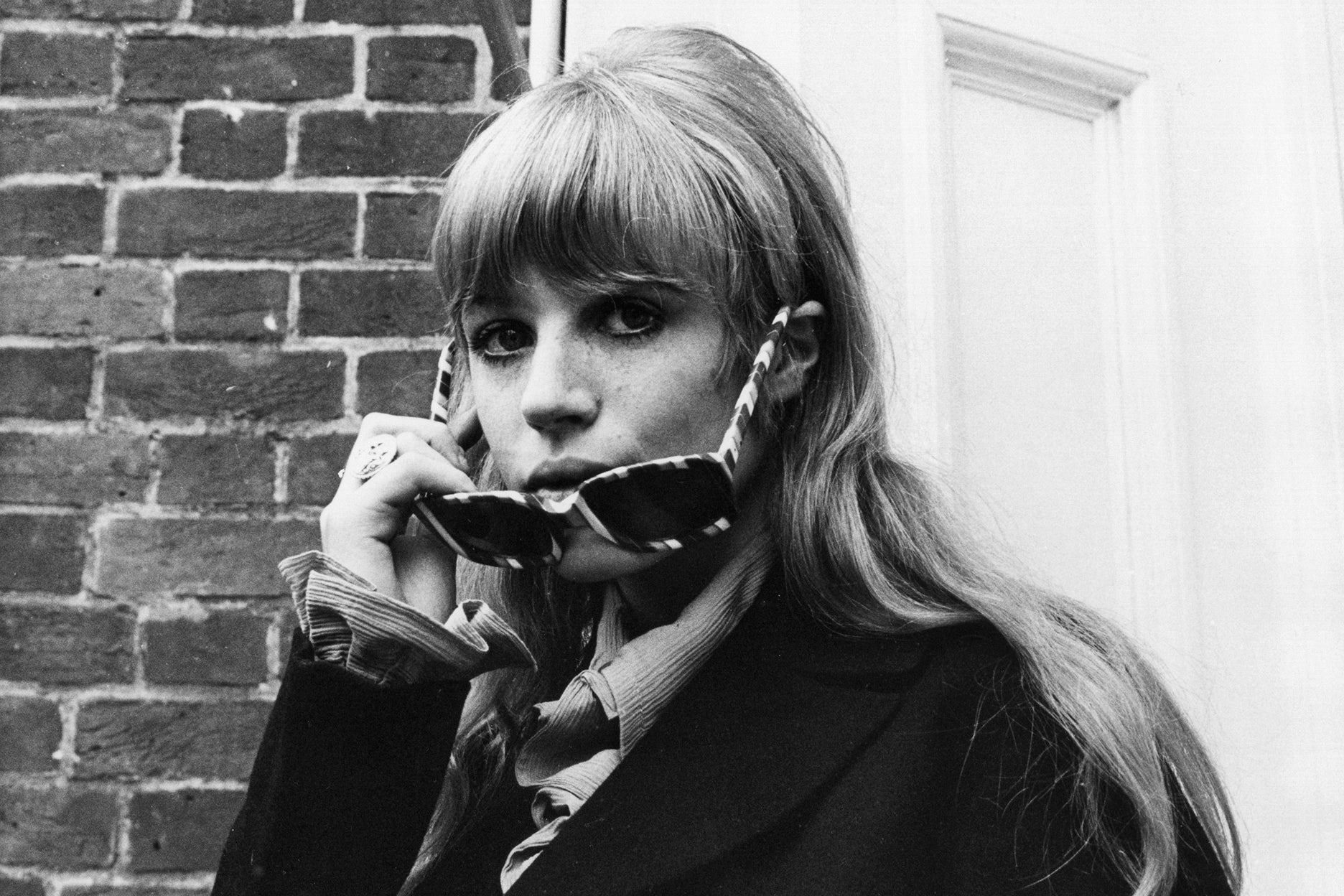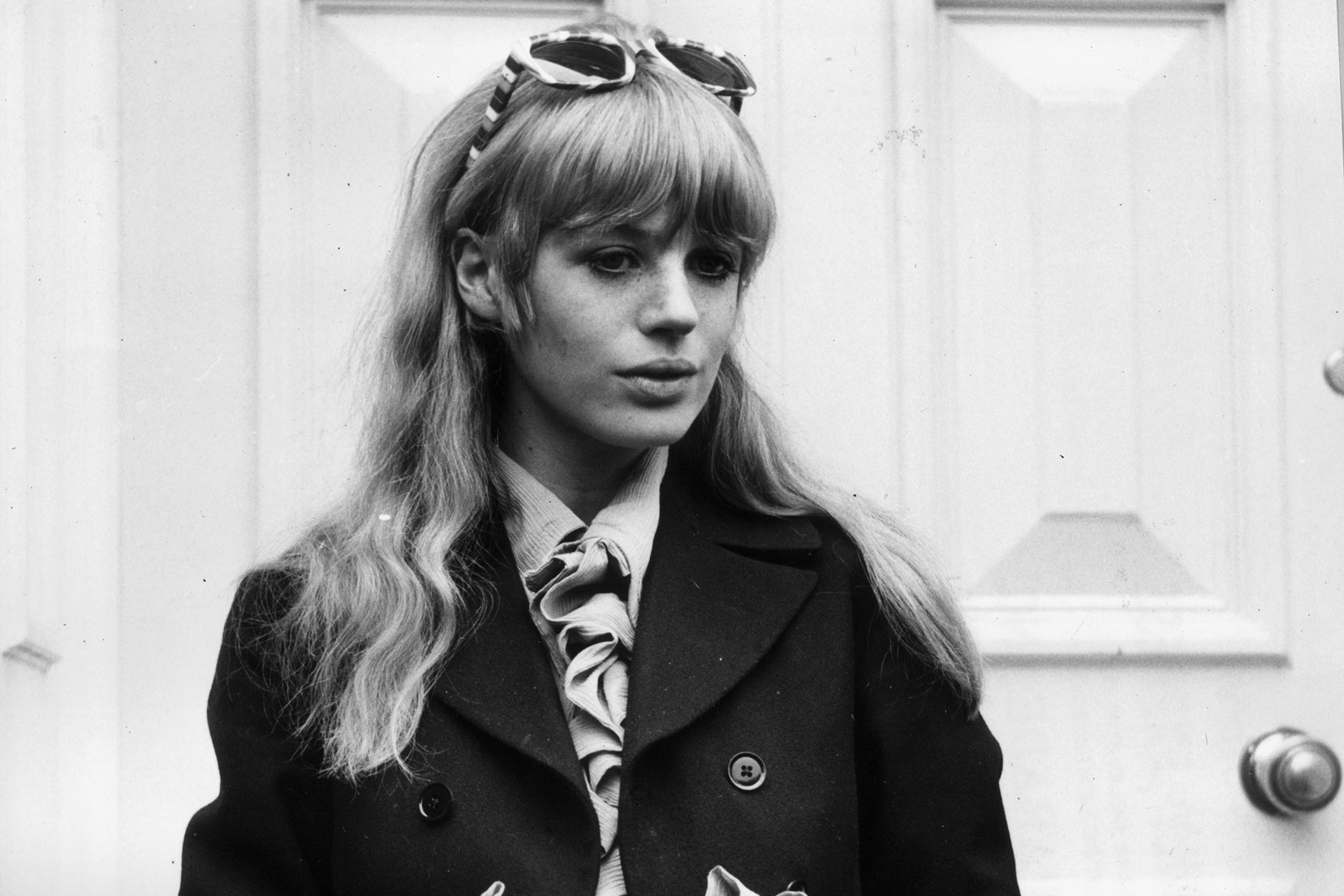
The voice of Marianne Faithfull (1946-2025)is one you remember long after the music stops. Like bruised velvet with a trace of smoke, it's the sound of someone who has seen the edge and lived to sing about it. But before the burnished ache, before the wreckage and reinvention, there was a girl in Chelsea, radiant and restless, emerging in the 1960s like a figure in a dream.
The voice of Marianne Faithfull (1946-2025)is one you remember long after the music stops. Like bruised velvet with a trace of smoke, it's the sound of someone who has seen the edge and lived to sing about it. But before the burnished ache, before the wreckage and reinvention, there was a girl in Chelsea, radiant and restless, emerging in the 1960s like a figure in a dream.
Born in 1946 to an Austrian baroness and a British intelligence officer, Faithfull was raised in the postwar hush of convent schools and bohemian salons. Her childhood carried the scent of ancient lineage and quiet rebellion. By seventeen, she was discovered at a London party and ushered into pop stardom almost overnight with “As Tears Go By,” a bittersweet ballad that betrayed a precocious melancholy beneath its baroque orchestration. She was still a teenager, but already marked by something more knowing.
She became a fixture of Swinging London, orbiting Mick Jagger and the Stones, the face of a moment when fashion, fame, and rebellion bled into each other with reckless abandon. To the tabloids, she was a scandal; to the underground, a muse. But she was perhaps something else entirely—an artist in chrysalis, caught in the glare. The ‘60s offered her a stage, but little shelter. She endured overdoses, arrests, and, consequently, the brutal loss of custody of her son. The fall was public and punishing.
What followed, though, was not a disappearance but a metamorphosis. In the late 1970s, after a decade of drug abuse and homelessness, with her voice deepened by ruin and resolve, Faithfull returned in 1979 with Broken English—a jagged, punk-inflected album that reintroduced her not as the ingénue of yesteryear but as a kind of post-apocalyptic torch singer. The record was raw and riveting, steeped in disillusionment and political urgency, and it announced the arrival of an artist finally in possession of her own mythology. Gone was the Marianne of florals and folklore; in her place stood a woman whose phrasing cut like a switchblade.
What makes Faithfull’s career so compelling is not its peaks, but its endurance. She has shape-shifted through eras and aesthetics with unflinching candor, channeling everything from Brechtian cabaret and Shakespearean tragedy to Velvet Underground dirges and the spectral murmur of Leonard Cohen. Her collaborations span the avant-garde and the classical: working with Hal Willner, Nick Cave, PJ Harvey, and Metallica with equal conviction. She inhabits songs as if excavating them, dragging each syllable through a history that feels both personal and collective.
There’s a certain defiance in how she’s refused nostalgia, even as her early image remains frozen in the cultural memory like a Pre-Raphaelite hallucination. Faithfull does not look back with longing. If anything, her art suggests a distrust of sentimentality, a preference for scars over souvenirs. In her memoirs, she recounts her life with the same unsparing tone found in her lyrics: wry, tragic, unflinching. She has become her own unreliable narrator, refusing neat arcs or tidy redemption.
And yet, across decades, she has never lost the ability to astonish. Before the Poison (2005), Give My Love to London (2014), Negative Capability (2018)—these later works are among the most devastating of her career, imbued with the kind of fragile gravitas that only time can confer. They read like dispatches from someone who has learned not just how to survive, but how to turn survival into song. Her voice, ravaged and radiant, no longer strives for beauty in the conventional sense. Instead, it leans into the imperfection, the erosion, the truth.
Marianne Faithfull’s legacy lies not in having been the voice of an era, but in her refusal to be silenced by it. She is not a cautionary tale or a comeback story, but a living document of what it means to endure artfully. In a culture that prizes reinvention as spectacle, she has made it a form of quiet resistance, layering each performance with the gravity of lived experience. Not many artists get to rewrite their story over and over again. Fewer still write it better over time. Faithfull did. And her voice, cracked and commanding, continues to echo, reminding us that ruin is often the doorway to unexpected renewal.

WRITTEN BY JMM
#music